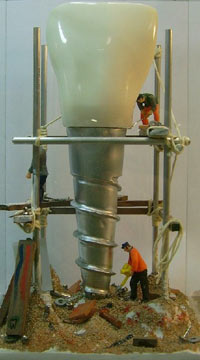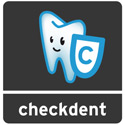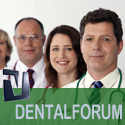Good dentist – bad dentist! Are our dentists worse than they were 50 years ago?
 Well… yes and no.
Well… yes and no.
No, because the amount of knowledge we have at our disposal is steadily growing, and today’s highly interconnected global information network makes for a steady stream of new information.
Yes, because studying is becoming more and more like schooling. This seems to be a general trend and not found only in dentistry.
–
Acquiring knowledge used to be entirely up to the student. Unlike school, with its schedules, curricula and assignments,a university would leave a student to decide what, where and how to learn.
–
Of course this meant that the universities had to deal with a certain number of students who never quite managed to „complete“ their studies, but these tended to give up after a while, thus making it possible to separate the wheat from the chaff. Nowadays, internships and colloquia are used to steer students through their studies, leaving little room for personal initiative. At some universities you are basically „carried“ through your studies.
–
Doctors who graduate like this usually stay on in university clinics, since a hospital or clinic acts as a kind of „buffer“ when mistakes happen, a luxury not given to doctors who have their own offices. Now, this does not mean that doctors who work at university clinics are „incompetent“.
However, it has been observed that talented doctors tend to use clinics as a kind of springboard to acquire knowledge and skills. Later on, they “cash in” on what they learned when they open their own offices . Few stay behind at clinics, taking advantage of the possibility to do research and work together with other doctors.
–
When talking to a doctor, ask him or her to explain your illness to you, everything can be explained logically and step by step. Moreover, a good doctor should not be afraid to say – „I don’t know“. If all you get is a vague and incomprehensible explanation, and the doctor seems to be beating around the bush, this is usually a sign that this doctor was „herded through“ their studies.
–
Learn for the sake of learning and not just to comply with curricula! Under the old system, it was much easier to simply select out the good and bad students – and one thing that hasn’t changed is that the ones who succeed are the ones who want to! What has changed is that nowadays it is easier for a lot of students to get through their studies by following lecture notes and a catalogue of questions, by simply „learning by rote“.
–
Dentistry is a craft, as are many other courses of study and professions! Universities should try to use a selection process to weed out those who have little skill, and also very little discipline and personal initiative.
Medicine, dentistry and other social professions have to do with ethics, morals and sustainability. The practice of choosing the costliest course of treatment over the best is unfortunately being encouraged by the way in which university studies are set up!
–
More about this topic here!
VN:F [1.9.22_1171]
Rating: 0.0/5 (0 votes cast)
VN:F [1.9.22_1171]
 If you have most of your fillings in your side teeth, then you are one of these people. The dental x-ray shows the fillings highlighted in blue – these are the bright spots in the picture!
If you have most of your fillings in your side teeth, then you are one of these people. The dental x-ray shows the fillings highlighted in blue – these are the bright spots in the picture!







